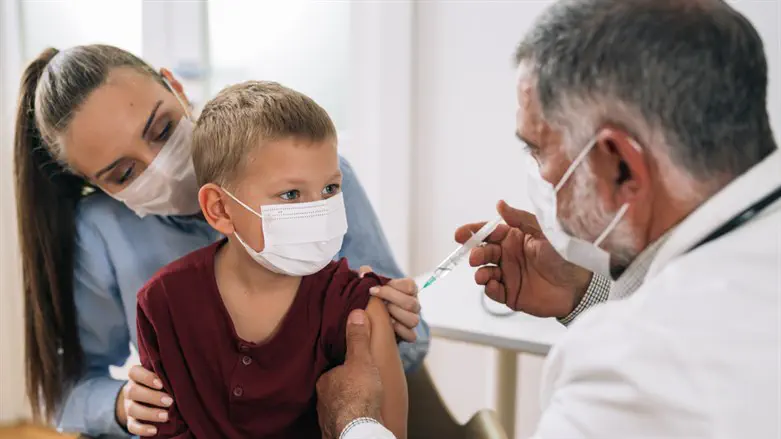
Only about 20% of Israeli children between the ages of five and 11 have received a COVID-19 vaccine to date, according to the latest data published by the Ministry of Health.
A new study of more than 1,800 Israeli parents, conducted by researchers from Bar-Ilan University's Azrieli Faculty of Medicine and its affiliate hospital the Galilee Medical Center, pinpoints some of the reasons that explain the low vaccination rate among this age group.
The study, recently published in the journal Human Vaccines and Immunotherapeutics, was conducted in November 2021, two weeks ahead of the vaccine rollout in Israel for children aged five to 11. Among the key findings that emerged: less than half (43.6%) of parents of children in this population said they were planning to vaccinate their children against COVID-19.
A key finding among those who said they would vaccinate was that parents' top priority was not to protect their children against COVID-19 (55.9%), but to allow them to return to school and everyday life (89%) and to assure financial resilience (77.9%). Moreover, parents who indicated that they would not vaccinate were more concerned about the safety of vaccines (53.1%) than the danger COVID-19 posed to children (37.9%).
"Many parents don't want to vaccinate their children because they don't believe COVID-19 causes severe illness," says Dr. Amiel Dror, of Bar-Ilan University's Azrieli Faculty of Medicine and the Galilee Medical Center, who led the study.
"This data can assist health authorities in shaping educational and communication campaigns for vaccines to show parents, among other things, that COVID-19 can be dangerous to anyone," added Dror, who collaborated with Prof. Michael Edelstein, of the Bar-Ilan Azrieli Faculty. Medical student Niko Morozov, from Tel Aviv University, contributed to collecting and analyzing the data.
In the survey of parents, one section included information about socio-demographic characteristics including age, gender, area of residence, household composition, number of children, parental education, parental COVID-19 vaccination status, and self-reported side effects from the vaccine (major, mild, or no symptoms), and a question on intention to vaccinate their child(ren) against COVID-19. In the second section, responders indicated why they were or were not intending to vaccinate their children against COVID-19.
The survey found that parents who had not been vaccinated themselves were less likely (13.1%) to vaccinate their children than those who received three (61.8%), two (48.2%) or one (32%) dose of the vaccine. Parents who had side effects after being vaccinated were less likely (57.8%) to vaccinate their children than those who were vaccinated and experienced major (19.6%) or minor (51.1%) side effects.
Female parents and parents above the age of 35 were more likely to vaccinate than male parents and parents aged 35 and younger (47% vs. 40%).
The availability of the vaccine for use in children aged five to 11 is not a guarantee that parents will inoculate their kids.
"Our findings suggest that, for COVID-19, the traditional perception of vaccination benefits such as protection against severe illness has been superseded by indirect benefits such as returning to regular societal life and education institutions, as well as assuring financial resilience for the family," the authors of the study wrote.
"While this finding is not surprising considering the severe disruption to normal life caused by the COVID-19 pandemic, it is not clear whether this perception of the societal utility of vaccines will continue to impact the perception of other vaccines beyond the pandemic."

